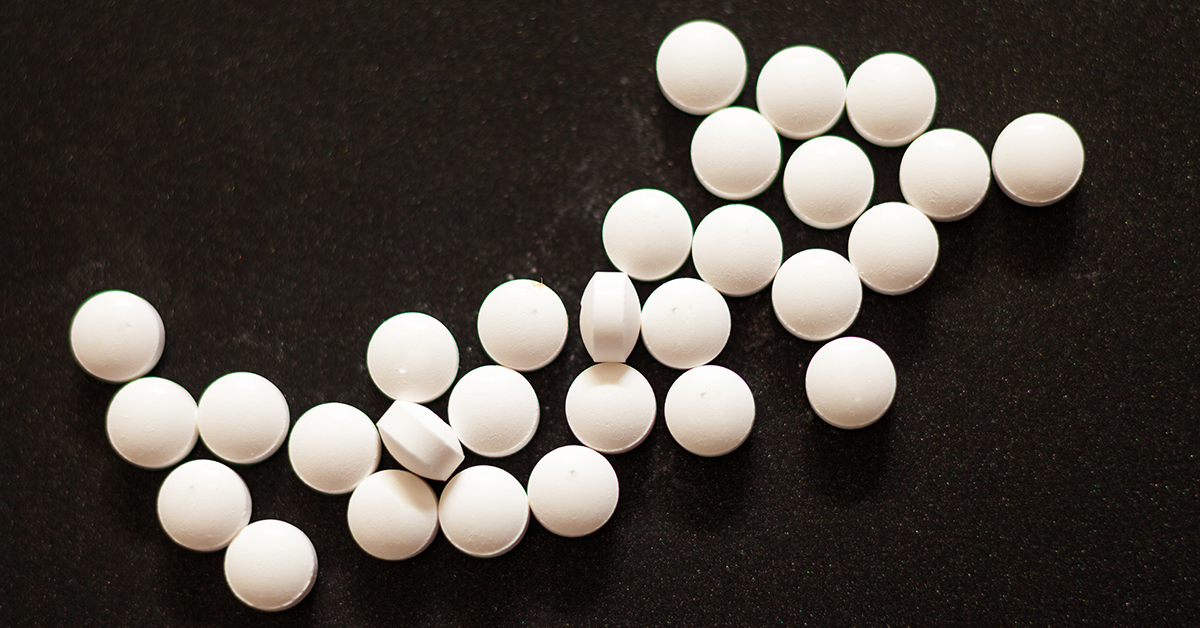
07 Jan How to Prevent a Drug Relapse
Table of Content
Sobriety is a lifelong battle. One that needs to be constantly maintained otherwise a relapse can occur. Relapse is characterized by a return to the drug after a period of disuse (be it a day, weeks, or years), and is sadly not uncommon in the world of substance addiction. Relapse rates tend to be very high for many drug addicts, even after engaging in and committing to a recovery program. Their return to drug abuse can and will be personally devastating to both the addict and their loved ones, but hope should not be lost. How to prevent a drug relapse has been the focus of substance abuse specialists and medical professionals the world over, but it invariably comes down to the will of the recovering addict to remain sober and the environment they find themselves in once detoxification is complete. Drug relapse is a real danger for any recovering addict (outside influences, societal triggers, and a return to past behavioral patterns can spell doom for many) but there are ways to avoid it. True friends, loving family and dedicated professionals will all be on your side as you fight the long fight against addiction and the temptations it brings. Relying on these people and committing to your recovery should be your first and best line of defense on the road to recovery.
Detox, Withdrawal and Relapse
You have made the decision to seek recovery. You’ve had enough of the destructive influence that drug addiction fosters and are seeking an escape from the life-threatening specter of overdose. So now the work begins. Going through detox is an extraordinarily difficult road to travel. Depending on the drug of choice, symptoms of withdrawal can be mild to mortal, but will always include intense cravings for the substance. This is why detox is always the first hurdle an addict will face when combating withdrawal and relapse. Denying your body its next fix, that physical dependent’s siren call for satisfaction, is no easy thing. The temptation to put an end to the symptoms of withdrawal (many of which are infamous for their severity) will be even harder to deny. Preventing drug relapse in these early stages of recovery comes down to the addict’s pre-detox preparations. Have they chosen to detox in a dedicated detox facility? Are there qualified medical and mental health professionals on hand to ease them through this most volatile stage? Do they have easy access to the drug that has fostered such an overwhelming physical dependence that its absence is making them ill? If you are asking these questions while the detox process is already underway then the battle may already be lost. The fact is that for some drugs (the heroin relapse rate is 90% within the first week) the physical dependence may be so all-encompassing that without professional guidance, the addict will most likely not have the strength to deny their body’s screams for relief. This is why, in order to prevent a drug relapse, addicts should consult with their doctor and seek out a dedicated drug recovery center before attempting to quit.

Relapse and Recovery: Outpatient or Inpatient?
Drug relapse preventions first line of defense will always be dispassionate and recovery-focused medical professionals. Unlike family or friends, these people will not be susceptible to an addict’s pleas for drug-induced relief from withdrawal. They will not cave to bargaining or pleading, they will not grant to the addict the easy way out. Checking into a recovery center will save an addict from relapse throughout the withdrawal process and will ensure that they remain in a stable and safe condition during detox. Choosing the right recovery center is important and there are multiple factors that will come into the decision. More often than not, people focus on their immediate recovery and how long they must be away from work and family when choosing the sort of program they wish to enroll in. This is why outpatient detox always seems like the right option.
Outpatient Recovery
Outpatient detox centers admit addicts who are about to go through the symptoms of withdrawal and will monitor them through the worst of it. Once detox has been achieved, the patient will be discharged (pending some evaluations) from the facility and set upon a recovery schedule that they may complete from home. This includes drug testing, group therapy sessions, one-on-one counseling and other such measures to prevent drug relapse while allowing them to live an otherwise normal life. The clear and present danger of being released to the outside world so soon after detox is that the addict will be returning to the same environment in which their dependency was fostered and their addiction flourished. Relapse doesn’t necessarily follow traumatic events or rough days. Sometimes it is the result of nostalgia, the fond recollections of “good times” past. At other times it is the slow, relentless grind of boredom that takes us back to the drug. Being released back into the world full of triggers and high-risk individuals (discussed below) so soon after detox can and will make relapse a much more immediate threat to the recovering addict. It may seem like the more convenient choice to use an outpatient recovery center, but the rewards of returning quickly to a normal life are mitigated by the risk that that normal life was the fountain from which addiction sprang…and could again.c
Inpatient Rehab
The more prudent option for professionally guided recovery, inpatient rehab combines the medical care through detoxification of an outpatient recovery center with long-term counseling and seclusion from the outside world. 30, 60 or 90-day programs see the addict through withdrawals and then set them upon a course for recovery. Therapeutic treatments, intensive counseling sessions and strict discipline are enforced over a long period in order to keep the addict’s minds focused on recovery and away from the beguiling world of drug abuse. What you lose in work hours and family time, you gain in professional guidance and self-determination. Rehab will change an addict’s perspective of the drug they once loved and keep them away from the environment that helped to build that damaging relationship. To prevent a drug relapse, addicts must have the wherewithal to identify triggers and avoid them. This is not a talent taught overnight, nor is it a lesson learned easily.
Rehab facilities, be they wilderness camps, luxury recovery centers or religious-based programs, have the amenity of time. Time to teach, time to share, time to build within an addict’s head the defenses necessary to keep relapse from occurring. By giving an addict this time to recover they also give the outside world the time to move on. Those with whom the addict once abused their drug of choice will find new friends with which to partake. Those enablers in the addict’s life will have the opportunity to come to understand just how damaging their enabling can be as time marches on and the addict is still away. These changes are not necessarily guaranteed, but can be happy side effects of long-term care and recovery. Inpatient rehab is built upon the principle that an addict, free of all the distractions and temptations of the outside world, can focus exclusively on their recovery and learn the lessons necessary to prevent a drug relapse when they are released.
Preventing Relapse from Home
Once an addict is released from rehab or an outpatient facility they will be confronted by their past lives almost immediately, and often with extreme prejudice. There are those who they will have hurt in the depths of their addiction, there are those who they will have become close to when they shouldn’t have. Coming back from detox and rehab can be the hardest transition of an addict’s life. Gone are the barriers that kept them safe, gone are the professionals who coached and cared for them. Suddenly, the world around them is a much wider place and everywhere, unless great care is taken, there will be reminders of their past life as a drug abuser. This is, again, where forward planning can work wonders in preventing drug relapse. Having good friends or family take the necessary steps while the addict to away to help ease this transition is a tried and true prevention tactic. Moving home (back into the family home or even into a new space in a different neighborhood) can do wonders for the returning addict, as they will no longer be constantly reminded of their past drug use where they sleep. Having others cut contact with those who sponsored or encouraged the drug use is also key. Having these conversations alone, the addict will often fall prey to pity and be unable to accomplish the goal at hand. This can lead to unwise rekindling of relationships and the real possibility of relapse. Removing triggers from the addict’s space—be it drug paraphernalia, clothing, artwork or even music— can keep them from having those lonely, nostalgic moments that can cause cravings for the “fun” they used to have. Overall, support is what an addict needs to prevent a drug relapse. Family, friends and colleagues must understand that any ills done or crimes committed were, more often than not, the result of the addict’s disease. This does not excuse them from culpability, but should open other’s eyes to the necessity of keeping the addict free from their addictive substance and supporting them as they fight to remain sober.

Aftercare: Lifelong Prevention
The long war against relapse is not one that should be fought alone (or even with just familial support). The fact is that without continued professional guidance and a culture of support, relapse can and will be a constant threat to an addict’s continued sobriety. This is why engaging an aftercare therapist and committing to a program (like Narcotics Anonymous 12-Steps) are incredibly important moves to make post-rehab. Therapy will help an explore the roots of their addiction: the causes, the triggers and the enabler. It will also allow the addict to vent their frustrations and have a dispassionate ear to bend when the cravings and temptations push them towards relapse. The benefits of regular therapy sessions cannot be overstated, it will help, it might even save, the addict if they are about to stumble and fall. Narcotics Anonymous and other such groups can also mean the difference between maintaining sobriety and slipping into relapse. Mutual support from other addicts, the free exchange of experiences and struggles, and the openness of sharing with those who understand the struggle can be a balm to the soul and can foster a sense of responsibility. Having a sponsor and sponsoring someone else breeds this and gives the addict a team with which to fight the good fight. Following the 12-Steps in congress with others sets benchmarks for recovery that would otherwise be missing for an addict. Committing to the steps, going to groups and enlisting the help of a therapist can make a huge difference and go a long way towards preventing a drug relapse.
Self–Discipline and Self–Determination
When all is said and done however, it comes down to the determination and discipline of the recovering addict to prevent relapse. Avoiding triggers and high-risk individuals is much easier said than done. Falling back into old routines or reestablishing contact with old friends can mean the difference between relapse and recovery. Even the most confident and committed recovering addict can slip up in a moment of weakness. The best way to avoid this is to ferment a new routine (focusing on one’s health, eating right and exercising regularly can make for an incredibly effective deterrent), focus on your own journey (do not try to save those who do not ask for salvation) and stay away from the situations, individuals and environments that encourage drug abuse.
Relapse can happen to anyone at any time. If it happens to you do not give up hope. Pitfalls and failures are the watchwords of life. We all fail, we all fall, it is how we pick ourselves up and dust ourselves off that defines us as. If you or a loved one are in the throes of drug addiction and are looking for a way out, call your doctor today and do your research. Recovery isn’t cure; it is a life-long struggle that takes time, energy and focus. The dangers of relapse are real, but by committing to your sobriety, seeking professional help, going to rehab and joining groups like Narcotics Anonymous can help prevent it and set you on the right path.
Sources:
“How to Avoid Relapse.” Rehabs.com. 15 Mar. 2019. https://luxury.rehabs.com/how-to-avoid-relapse/
Miller, Leah. “Drug Relapse Prevention Tips.” Project Know. 15 Mar. 2019. https://www.projectknow.com/rehab/relapse-prevention/
“Avoiding Common Triggers to Relapse.” American Addiction Centers. 15 Mar. 2019. https://americanaddictioncenters.org/rehab-guide/relapse-prevention



 678-771-6411
678-771-6411


No Comments